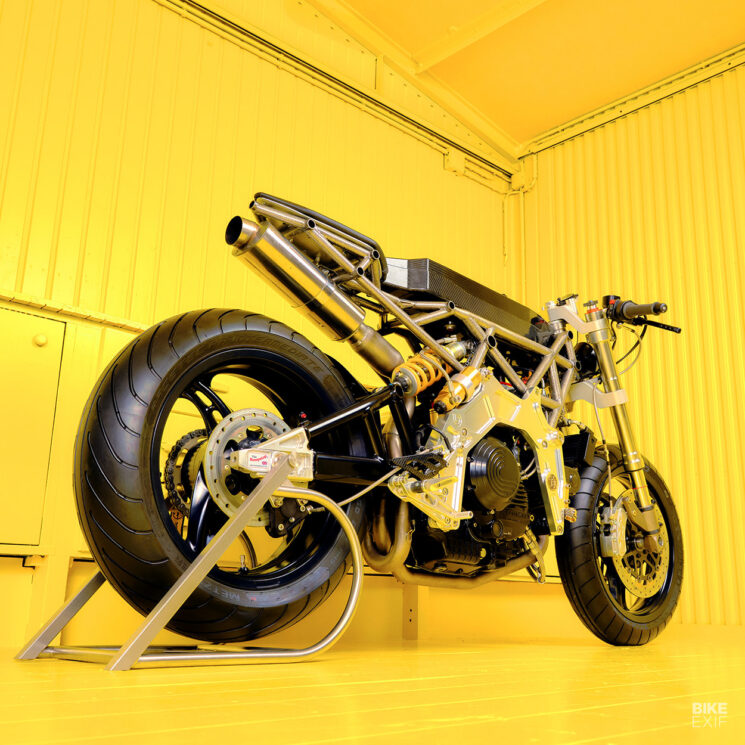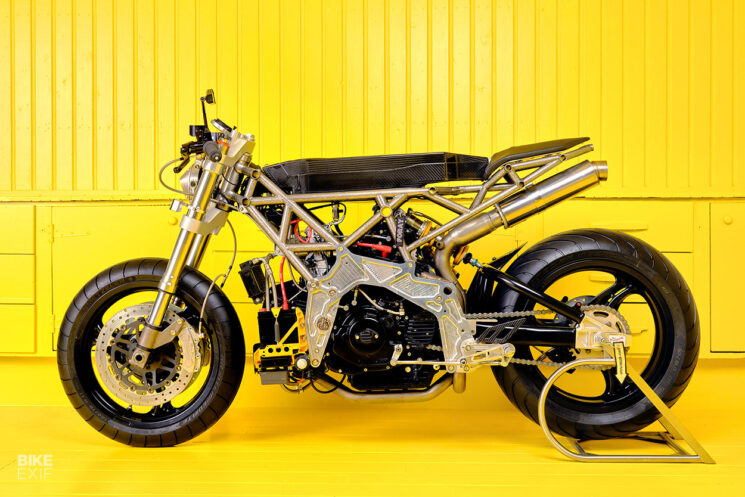
No one upcycles quite like Roland Groteclaes. Based in Belgium, he’s a multi-talented creative that splits his time between illustration, design, painting and sculpture. And the latter is almost always done using salvaged parts.
This approach to his art is reflected in the custom bike he’s just built. Dubbed ‘Foray,’ it’s best described as a Bimota/Ducati hybrid. But this wasn’t a simple engine swap job—instead, it was pieced together almost entirely with leftover parts from multiple donor bikes.
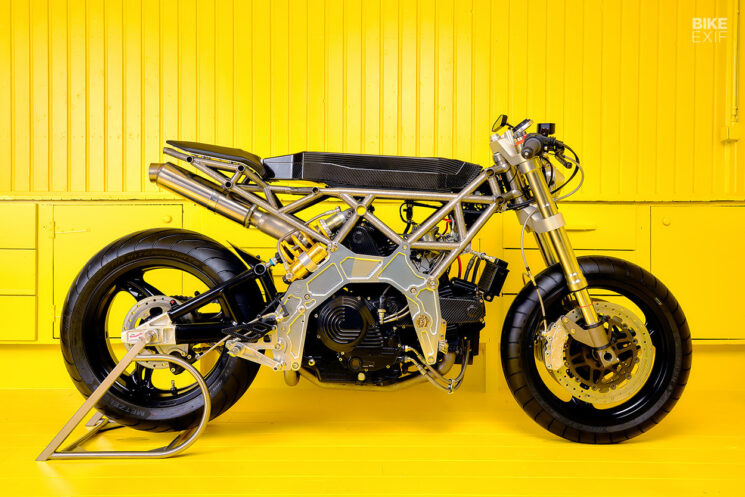
The inspiration for Foray came from a particularly unusual source. “A friend form England gifted me a used Honda F1 carbon fiber heat exchanger,” Roland tells us. “He thought I could use it in a sculpture, but it was more than clear to me that I should give this piece a new identity, as an upcycled motorcycle fuel tank.”
“So the creation of Foray—its mere existence—revolves around one piece: the fuel tank.”
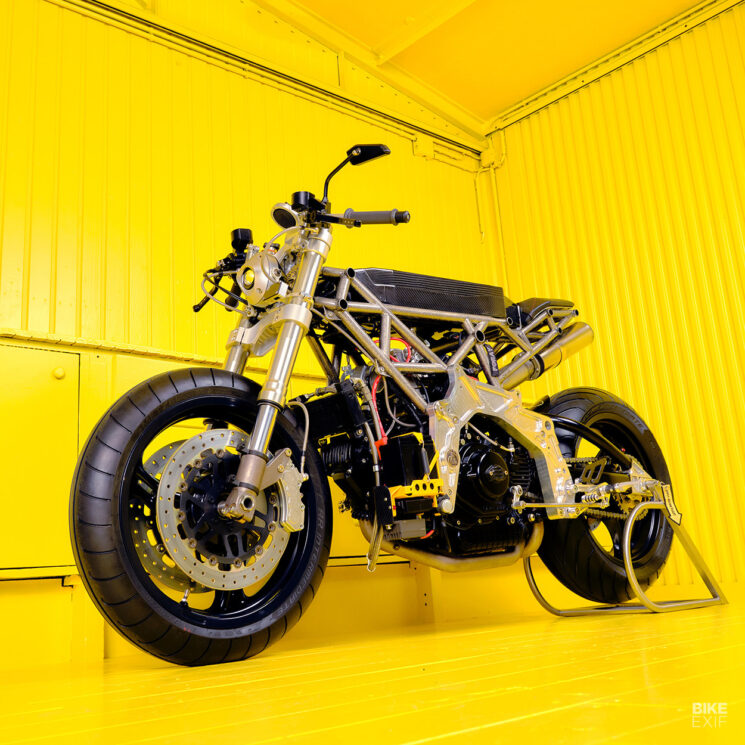
Roland needed to piece a motorcycle together to host his new fuel tank, so he took stock of what he had in his garage. “I ride a Bimota DB3 Mantra,” he explains. “And, like most motorcycle maniacs, I have a lot of new and used parts, all saved with the idea that one day I may make use of them.”
Roland’s stash included a Bimota DB3 swingarm, a pair of DB4 Antera wheels, and a DB2 exhaust system. Given that those parts all came from Italy, he decided that a Ducati engine would be the perfect fit.
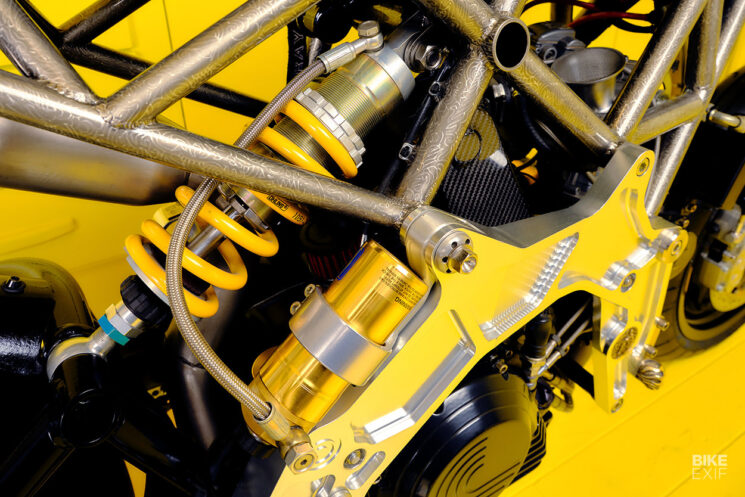
After some searching, Roland found the perfect motor in Germany; an ex-Battle of the Twins 944 cc race-prepped Ducati mill, complete with open Keihin FCR carbs. He immediately sent it to friend at a Ducati dealership in the Netherlands for a clean bill of health.
But there was one more part that Roland needed before the project could start in earnest: a suitable chassis. He managed to hunt down what he calls “the Holy Grail”—an original Bimota Tesi Omega frame. But even that wasn’t left stock.
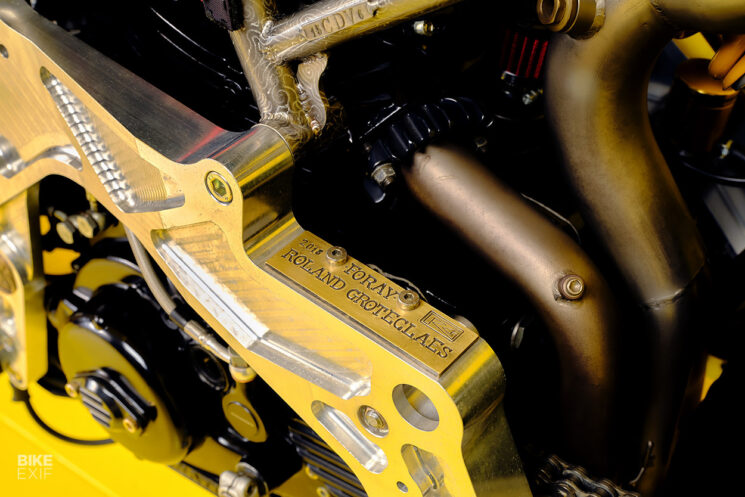
The Bimota’s frame was stripped down to its distinctive CNC-machined mounting plates, which were flipped around to get the geometry just right for a new trellis frame that Roland had conceived. “The construction of the trellis frame, and the cutting and filling of the tubes into different shapes and angles was truly complex, and a complete mixture between meditation, frustration and excitement,” he tells us.
“I have always been honest with myself, and I am aware that I am not a good welder. And since all motorcycle frames need perfect welding, I decided to delegate this task. So I contacted a friend who is a talented metalworker to give me a hand.”
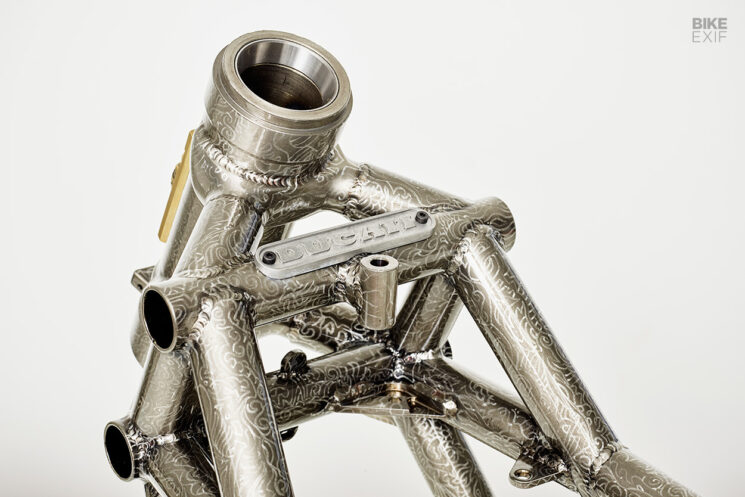
Roland’s connection TIG welded the whole thing together out of 15CDV6 tubing—a low carbon, high strength steel used in the aerospace and motorsports industries. True to form, a few upcycled scraps of salvaged aircraft steel were added to the mix too.
Once the frame was ready, Roland spent 18 hours on it with a silver marker—covering every inch in an intricate hand-drawn pattern. A few custom-made badges were sprinkled on it too, to personalize it even more. (Roland even added a stamped Ducati badge just behind the steering neck, since the engine is the only truly identifiable part on this build.)
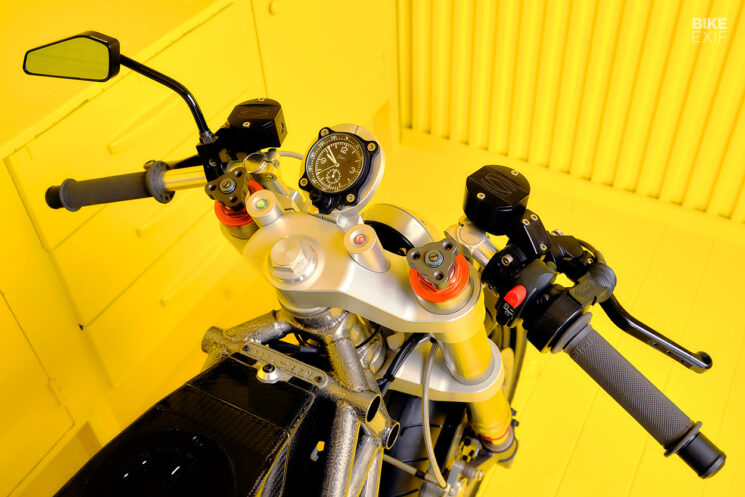
With a set of CNC-machined yokes from a shop in Germany, and the Showa forks from a Ducati 916, Foray started to come together. The cockpit features a pair of CNC-machined fork preload adjusters, plus BKG clip-ons, a Keihin throttle, Renthal grips and Spiegler master cylinders. A custom-made headlight lights the way.
Foray has no speedo or tacho; instead, Roland added a timepiece from his favorite horologist. “I love Sinn-Spezialuhren from Germany,” he tells us. “I wanted a Sinn NaBo aircraft clock on the motorbike, so that I would always be home in time for dinner.”
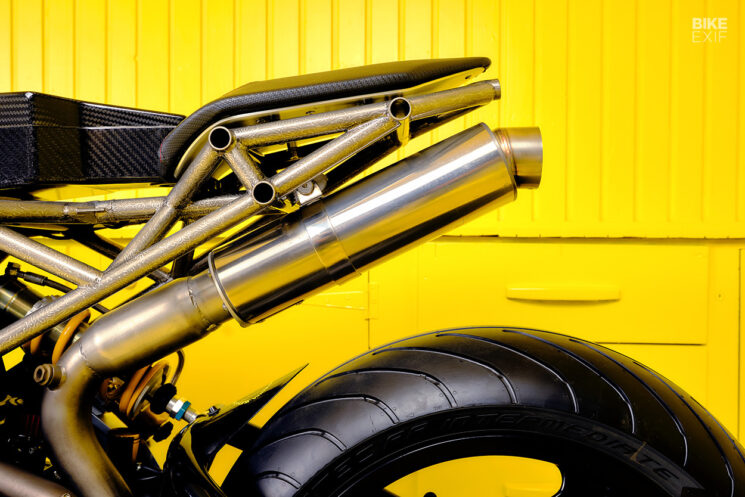
With help from another friend, Roland ticked off the last of the electrical and mechanical tasks. The Bimota swingarm, wheels and exhaust that he had in hand went onto the bike too—but there was one final component missing, and it required a quick trip to Switzerland.
“I wanted to install eight-piston Spiegler front brakes on the bike,” he explains. “But the owner of these parts insisted that the only way he would sell them to me, was if I showed up and had a cup of coffee with him.”
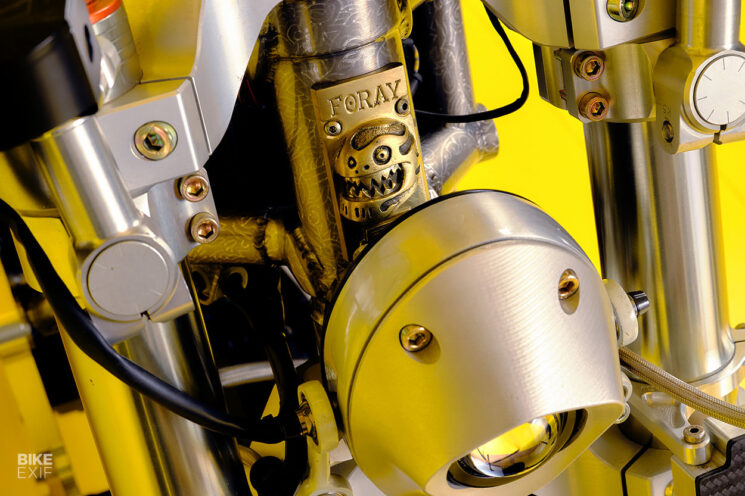
“The Foray project reflects work that was conducted with passion and determination, and a good level of lunacy and caffeine, which also relied greatly on camaraderie and craftsmanship.”
Sounds like a great recipe to us.
Roland Groteclaes | Instagram | Images by Gregor Collienne
